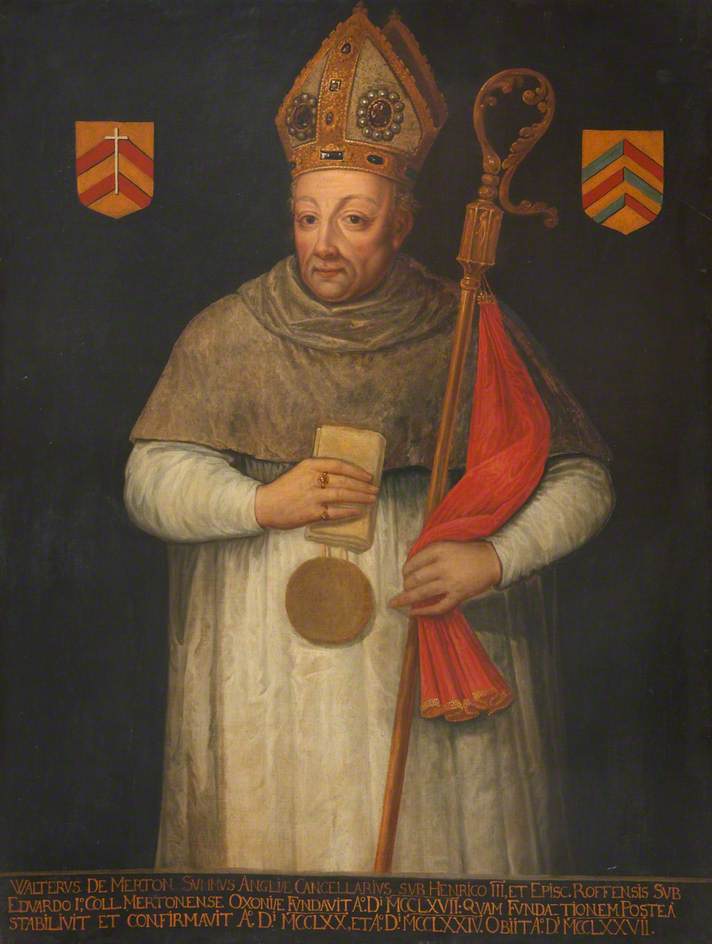WALTER OF MERTON GAVE ENGLAND AN EDUCATION SYSTEM

[Above: Imaginary portrait c. 1670, by Wilhelm Sonmans (d.1708) of Walter de Merton (c. 1205–1277), Lord Chancellor of England. Original in Bodleian Libraries, University of Oxford / public domain, Wikimedia]
WALTER OF MERTON knew the value of education. His own schooling had opened doors for him in the church and eventually at the royal chancery (the office of England’s Lord Chancellor). He acquired seven church livings and prospered. In 1261, King Henry III appointed him Chancellor, a position he held until the middle of 1263 and would hold again after Henry’s death in 1272. In 1274 he became bishop of Rochester.
More than a decade before his elevation to bishop, Merton had determined to use some of his income to support students. He had seven sisters with eight nephews who needed educating. In 1261, he obtained a charter from the Earl of Gloucester allowing him to assign the revenues of Farley and Malden for the support of scholars. He deeded these lands and others to educate his nephews. If funds exceeded the cost of these eight, other scholars could be supported.
At first a rather confusing arrangement existed between a school in Merton, Surrey, and students at Oxford. However, Walter of Merton bought land in Oxford and founded Merton College. In 1274, he transferred all the students to the Oxford site.
Although other colleges claim priority because of earlier founding, Merton’s was the first to set forth statutes. These created a corporation under the headship of a warden. Older scholars were to monitor younger students in dorms. Students who took religious vows lost financial aid (their religious orders were expected to support them). The program emphasized philosophy and the liberal arts over theology. Merton stipulated that divine service was to be held at major college business meetings, and that his name was to be remembered along with any other significant benefactors. As a consequence of these statutes, he became famous.
Riding home from Oxford in 1277, his horse stumbled while fording a river (probably the Medway) and pitched him into the water. His servants rescued him, but the accident spelled his doom. Perhaps he felt death approaching. At any rate, on this day, 26 October, 1277, Walter of Merton changed his will. He left all his property to Merton College. The following morning, he died.
Merton’s establishment of the College and its statutes are what keep his fame alive. His plan was imitated by other colleges. That is why a Latin epitaph says that while he was founder of just one college, he was, in fact, the founder of them all in conception:
Re, unius
Exemplo, omnium quoquot extant
Collegiorum, fundatori.
—Dan Graves
----- ----- -----
For more on the long history of Christianity and education, read Christian History #139, Hallowed Halls






